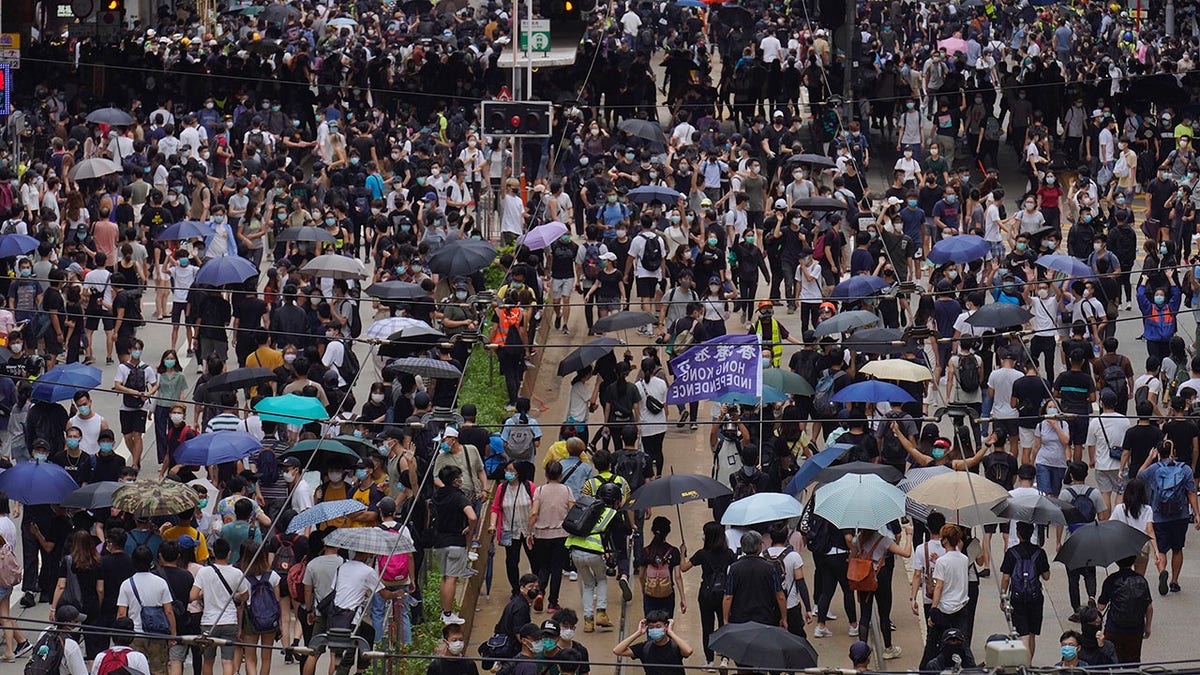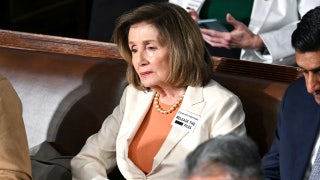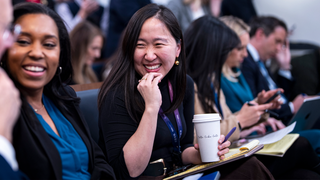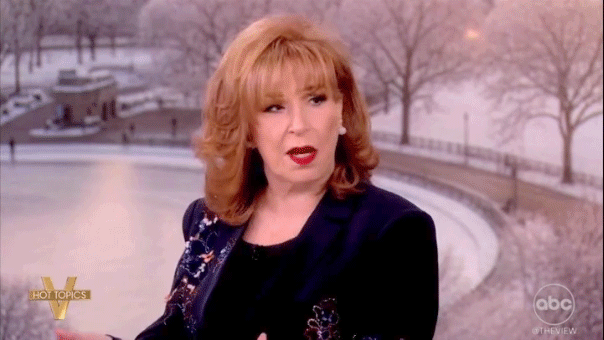Gordon Chang: Beijing testing America's resolve with sweeping security law in Hong Kong
Gordon Chang discusses the significance of Mike Pompeo's saying Hong Kong is no longer considered and autonomous region of China
Chinese leadership in Beijing is testing American resolve by endorsing a national security law that alters Hong Kong’s mini-constitution, or Basic Law, analyst Gordon Chang stated Thursday.
In an interview on "America's Newsroom" with host Ed Henry, the Asia analyst said that China has found the U.S. "failing" in responses from previous administrations.
CHINESE LEGISLATURE ENDORSES CONTROVERSIAL HONG KONG NATIONAL SECURITY LEGISLATION: REPORT
"It's important to teach the Chinese [that] Americans are going to stand up for themselves, their allies, and friends," he urged. "We have to un-teach some bad lessons that previous administrations gave to the Chinese."
The National People’s Congress – or NPC, China's legislature – approved the bill as it wrapped up an annual session. The vote was 2,878-1 with six abstentions, in line with the high-profile but largely ceremonial body’s custom of near-unanimous support for all legal changes decided by the ruling Communist Party.
The law will require the territory to enforce measures to be decided by the NPC’s standing committee, a small body controlled by the ruling party that handles most lawmaking work.

Pro-democracy protesters march during a protest against Beijing's national security legislation in Hong Kong, Sunday, May 24, 2020. Hong Kong's pro-democracy camp has sharply criticized China's move to enact national security legislation in the semi-autonomous territory. They say it goes against the "one country, two systems" framework that promises the city freedoms not found on the mainland. (AP Photo/Vincent Yu)
The move, which prompted new protests in the territory, reflects the determination of President Xi Jinping’s government to tighten control over Hong Kong following 11 months of anti-government clashes.
On Wednesday, Secretary of State Mike Pompeo announced that the State Department no longer considered Hong Kong to have significant autonomy under Chinese rule. Pompeo's remarks indicated the Trump administration was likely to withdraw from special trade and economic relations the former British colony has enjoyed since it reverted to Chinese rule 23 years ago.
The move does not carry any immediate penalties, which would have to be decided by President Trump in consultation with Congress. But the administration sees it as putting China on notice.
The United States' relations with the East Asian power player have weakened in recent months — mainly over allegations that Chinese authorities sought to cover up the coronavirus pandemic.
Henry asked Chang what he believed America's next steps would be, citing the Trump administration's long-awaited trade deal with China.
"Well, first of all, the withdrawal with the sanctions exemptions for Hong Kong," Chang replied. "Tariffs will be put on Hong Kong. Maybe there will be global Magnitsky-type sanctions on Chinese and Hong Kong officials."
CLICK HERE FOR THE FOX NEWS APP
"And," he added, "Jimmy Lai – who runs the only pro-democracy newspaper in Hong Kong – told Maria Bartiromo on Tuesday that he'd like to see the confiscation of assets of those officials. I think that's probably a good thing."
"But, you know, Hong Kong is in the context of our many disagreements with China, so we're going to see all sorts of actions against Beijing because Beijing has been attacking us," Chang concluded.










































